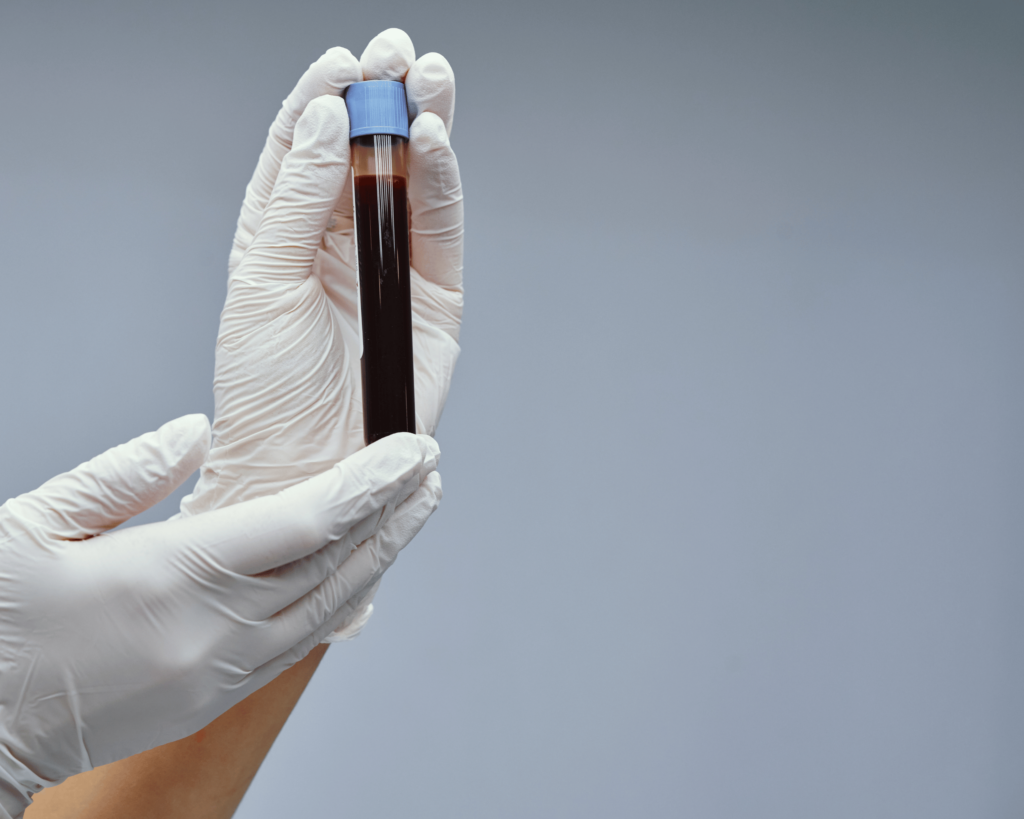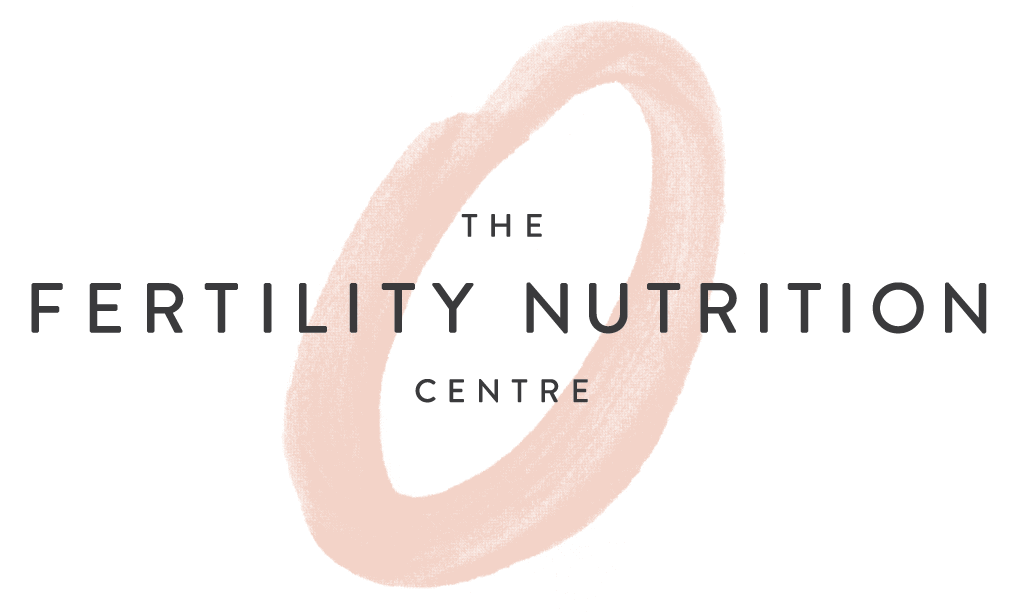
Crucial Fertility Tests Your Doctor Might Be Missing: Why Working with a Fertility Specialist Matters by Milena Mastroianni
Navigating the journey of trying to conceive (TTC) can be an emotional and challenging experience, especially when faced with the diagnosis of unexplained infertility. Or just in general, when things are taking too long, and you don’t know why. In such times, you might feel frustrated by the lack of clear answers and wonder if there’s something crucial being overlooked.
I’m Milena Mastroianni, a Registered Nutritional Therapist and certified fertility specialist. Today, we’re diving into the world of advanced fertility testing and why working with a fertility specialist such as myself can make a significant difference in uncovering underlying issues that might be missed by standard evaluations.
In this blog post, we will discuss six essential fertility tests that could provide the missing pieces to your fertility puzzle and explain why partnering with a fertility expert is a vital step toward achieving your dream of parenthood.
The Limitations of Standard Fertility Tests
When you first seek help for fertility issues, your doctor will likely run a series of standard tests. While these are important, they often don’t tell the whole story. One particularly frustrating ‘diagnosis’ after running the standard tests is that your fertility issues are ‘unexplained’. In fact, many fertility specialists, such as myself, argue that “unexplained” infertility is really just “un-investigated” fertility and no diagnosis at all. There’s usually a reason – we just need to dig deeper to find it. And where there’s a reason, there are opportunities for solutions.
Another crucial element is looking at the body as a whole, which is when nutrition merges with functional medicine. Functional medicine doesn’t divide the body into different systems; for example, hormones are not separated from gut health or metabolic health. Its main goal is to find the reasons or root causes of imbalances that may be showing as symptoms and challenges, like fertility issues.
Six Advanced Fertility Tests Often Overlooked by Doctors
Comprehensive Blood Testing

You may have had some general hormone blood testing via your doctor, but the information available from running a comprehensive blood panel goes way beyond hormones. Not only can it help you become really aware of what’s going on in your body in terms of nutrition deficiencies that can impact fertility, but it can also reveal imbalances or patterns related to inflammation, immune health, and metabolic health. This should be the first step for any fertility testing.
A fertility specialist can order or direct you on how to obtain these extensive and more comprehensive tests and interpret the results with an eye for optimal nutrient levels, not just normal ranges. Comprehensive blood testing also provides information on a few important markers around thyroid health that are often overlooked in the standard type of testing. It’s really important that thyroid health is properly looked into, as it’s a vital component for healthy fertility.
Vaginal Microbiome Analysis

A healthy vaginal microbiome is pivotal for fertility. For example, research tells us that the presence of lactobacilli is positively correlated with successful pregnancies – so it’s important to know that it’s there.
Imbalances or infections can disrupt this delicate vaginal ecosystem, leading to inflammation affecting sperm or potentially interfering with conception and implantation.
This test is rarely offered in standard fertility investigations but can provide crucial insights.
Depending on your symptoms and case history, there are various companies to choose from when sourcing vaginal microbiome test kits. A fertility nutritionist can direct you towards the most appropriate testing for you as well as thoroughly support you with a restorative protocol afterwards depending on any findings.
Gut Health Investigations

Your gut health impacts more than digestion. It is also the cornerstone of immune health and function, nutrient absorption, and inflammation control—all of which affect fertility. The gut microbiome regulates many of these functions. So, when we say ‘it starts with the gut’, this is what we mean because if something is off with the gut microbiome, it is very likely that this leads to symptoms like infertility.
The gut microbiome is “the mothership of all microbiomes” because it acts as the central command for all other body microbiomes, including the crucial vaginal microbiome, which we discussed earlier.
By knowing the state of our Gut Microbiome through comprehensive stool testing it’s possible to address symptoms like chronic inflammation (e.g. in hormonal conditions), immune function dysregulation (e.g autoimmune issues), and of course nutrient deficiencies too.
Last but not least, and in addition to its link to fertility health, the gut microbiome is what we pass on as an inheritance to the next generation. Optimising gut health can lead to many many benefits not just for the health of the parent and pregnancy but also for the offspring.
This is why gut testing is often used in fertility investigations. It really has an important impact on health, and optimising the gut microbiome can, in turn, also optimise fertility.
As a final note, gut health is absolutely not to be ignored if there are obvious digestive symptoms in the picture, too!
Advanced Sperm Investigations
While a semen analysis is a good starting point, what needs to be better understood is that it’s just the tip of the iceberg. It provides pretty limited insight.
A semen analysis can’t rule out or uncover under-the-water issues like DNA fragmentation or sperm oxidative stress, which could be enormously impacting the quality of the sperm, not just how they look and swim.
Factors such as DNA fragmentation and sperm oxidative stress can significantly impact male fertility and, therefore, embryo development. Just like egg health, male semen health is an essential part of the equation in a fertility journey, which, unfortunately, is not always given the attention it deserves. A fertility nutritionist can direct the process of making sure both parties in the picture are fully considered in the TTC journey.
Furthermore, understanding the shared reproductive microbiome is crucial to gaining really deep fertility insights for the couple and any possible cause for inflammation and DNA damage. This is why using microbiome analysis of semen is another really important area that a fertility nutritionist can support you with.
Full Genetic Panel

You may have heard of MTHFR gene mutations and their potential impact on fertility and pregnancy in relation to the body’s metabolism of folic acid and folate in the process of methylation. You might have read about this in the press in recent years.
However, MTHFR is just one piece of the genetic puzzle. Many genes are involved in methylation, a vital biochemical process that occurs constantly in the body as a result of nutrient metabolism.
Methylation is fundamental to fertility because it is at the foundation of cell renewal and replication, but there’s more to methylation than just MTHFR. A full genetic panel can provide a more comprehensive picture of potential genetic factors affecting fertility.
As always, we want methylation to work effectively on both the male and female sides of the conception journey. And it’s important to note how our genes work together in our bodily processes – they are not just our destiny but the environment we provide to them, so what we do/eat/drink and think, can switch them on (allow for the expression of that gene) or off.
A full genetic panel also known as Nutrigenomics Testing provides a fuller picture, pinpointing specific areas that may need support on your fertility journey.
In-depth Hormone and Cycle Analysis
Tracking your cycle goes beyond identifying your fertile window. A detailed analysis of your hormone levels throughout your entire cycle can reveal subtle imbalances that standard tests might miss.
When it comes to advanced hormonal testing, we want to look at not just your AMH, FSH, and LH plus other important hormones, such as oestrogen and progesterone, but also how they behave throughout their cycle. We can also look at the pathways that some of the hormones tend to use, especially in the case of oestrogen. This is very important in the case of conditions such as PCOS and endometriosis or adenomyosis.
Finally, let’s not forget the importance of the thyroid in sex hormone regulation, too. The thyroid is tightly intertwined with progesterone production, and this can have a major impact on implantation, maintaining a pregnancy, or avoiding complications.
Why These Tests Matter
Each of these tests provides valuable insights that can guide your fertility journey. They can reveal underlying issues that might be hindering conception or contributing to recurrent miscarriages. More importantly, they allow for a truly personalised approach to fertility treatment, moving beyond the one-size-fits-all solutions often offered in general medical settings.
The Benefits of Working with a Fertility Specialist
As fertility specialists, we have access to order these advanced tests and the expertise to interpret the results in the context of your unique situation. This means we can create targeted treatment plans based on your specific needs, potentially saving you time, money, and much emotional distress in the long run.

Taking Action: Next Steps for Couples Struggling with Fertility
If you’re facing fertility challenges, consider seeking out a fertility specialist who offers advanced testing. It’s important that you look for professionals with the right qualifications and credentials, as well as experience in nutritional approaches to fertility, as diet and lifestyle factors can play a significant role in reproductive health.
While standard medical care is crucial, sometimes, we need to dig deeper to uncover the root causes of fertility issues. Advanced testing and specialised support can provide the answers and solutions you seek. Remember, “unexplained” doesn’t mean “unexplainable” – it just means we must look harder.
Why Wait?
Some of these tests are not super expensive compared to the costs of failed IVF cycles or years of heartbreak. Advanced tests can give you an idea of the couple’s weak spots and provide answers when the label “unexplained” has been provided. Personalising foods and supplements is often best done after testing or with testing in mind. Then you know that what you’re focusing on is just for YOU, and no cookie-cutter approach is taken.
Don’t let another year pass without getting the answers you deserve. Consult with an FNC-certified fertility specialist today and take the first step towards a more comprehensive understanding of your fertility health.
More info on advanced testing for fertility
Download Milena’s handy FREE guide about Advanced Fertility Testing. → Advanced Fertility Testing Guide.
Download Milena’s FREE blood testing guide here → Blood Testing Guide
Listen to Milena’s recent podcast interview → Functional Blood Testing and Analysis for Fertility.
This blog post is written by Milena Mastroianni. Milena is a dedicated Registered Nutritional Therapist specialising in fertility for women and couples. Inspired by her own transformative experience with nutrition and in-depth testing, Milena focuses on overcoming the challenges of conception and hormonal imbalances. She leverages advanced functional medicine testing tools to uncover the root causes of fertility issues, guiding her clients with personalised recommendations and real food strategies. Milena’s passion lies in empowering her clients to take control of their health and fertility journey, helping them build a solid foundation for conception and a healthy pregnancy.
Connect with Milena on Instagram here
Discover Milena’s website here

Don’t forget to follow our Instagram page for more fertility nutrition tips from our team of certified practitioners.




